第47章 Chapter (4)
But he generally preferred fords, where they could possibly be had, to bridges.
--
* See ante, pp. 50-52 [End of Chapter 4].
--
This victory was very complete. Many of the Tories came in, and joined the ranks of the conqueror. Those who did not, were quite too much confounded to show much impatience in taking up arms against him. His uniform successes, whenever he struck, had already strongly impressed the imaginations of the people.
His name was already the rallying word throughout the country.
To join Marion, to be one of Marion's men, was the duty which the grandsire imposed upon the lad, and to the performance of which, throwing aside his crutch, he led the way.
We have already shown why the force of Marion was so liable to fluctuation.
The necessity of providing for, and protecting destitute families, starving wives and naked children, was more imperative than that of a remote and fancied liberty. These cases attended to, the militia came forth, struck a few blows, and once more returned to their destitute dependents. The victory over the Tories of Black Mingo, was, from this cause, followed by a more than usually prolonged inactivity of our partisan. His men demanded a respite to go and see their families.
He consented, with some reluctance, for the business of the campaign was only beginning to open itself before him. They promised him, as usual, to return in season; but remained so long absent, that, for the first time, he now began to doubt and despair of them. This feeling was not natural with him. It was probably only due now to some derangement of his own health, some anxiety to achieve objects which presented themselves prominently to his mind. He had probably heard of the advance of General Greene, who, having succeeded to Gates, was pressing forward with fresh recruits, and the remnant of the fugitives who survived, in freedom, the fatal battle of Camden. A laudable anxiety to be active at such a time, to show to the approaching Continentals that there was a spirit in the State which they came to succor, of which the most happy auguries might be entertained, prompted his morbid impatience at the long delay of his absentees. There were other causes which led him to feel this delay more seriously now than at other times. The Tories were again gathering in force around him. Under these circumstances, and with these feelings, he consulted with his officers whether they should not leave the State and join the approaching army of Greene. Hugh Horry counselled him strenuously against it. His counsel was seconded by the rest.
They prevailed with him. It was fortunate that they did so;for the great efficiency of Marion was in the independence of his command.
While the matter was yet in debate, the militia began to reappear.
He had not sufficiently allowed for their exigencies, for the scattered homes and hiding-places of famishing hundreds, living on precarious supplies, in swamp and thicket.
How could he reproach them -- fighting as they were for love of country only, and under such privations -- that country yielding them nothing, no money, no clothes, no provisions, -- for they were nothing but militia.
They were not enrolled on the Continental pay list. That they should seek the field at all, thus circumstanced, will be ever a wonder to that class of philosophers who found their systems upon the simple doctrine of human selfishness.
True to their chief, he rejoiced once more in their fidelity;and, marching into Williamsburg, he continued to increase his numbers with his advance. His present object was the chastisement of Col. Harrison, who was in force upon Lynch's Creek; but his progress in this direction was suddenly arrested by his scouts, who brought him tidings of large gatherings of Tories in and about Salem and the fork of Black River.
In this quarter, one Colonel Tynes had made his appearance, and had summoned the people generally, as good subjects of his majesty, to take the field against their countrymen. It was necessary to check this rising, and to scatter it before it gained too much head;to lessen the influence of Tynes and his party, over those who were doubtful, and afford the friends of the patriots an opportunity to come out on the proper side. There were other inducements to the movement.
Col. Tynes had brought with him from Charleston, large supplies of the materials of war and comfort -- commodities of which the poor patriots stood grievously in need. They hungered at the tidings brought by the scouts, of new English muskets and bayonets, broad-swords and pistols, saddles and bridles, powder and ball, which the provident Colonel had procured from Charleston for fitting out the new levies.
To strike at this gathering, prevent these new levies, and procure the supplies which were designed for them, were controlling objects to which all others were made to yield. The half naked troops of the brigade found new motives to valor in the good things which the adventure promised.
Tynes lay at Tarcote, in the forks of Black River, and, as Marion was advised, without exercising much military watchfulness. The head of his column was instantly turned in this direction. Crossing the lower ford of the northern branch of Black River, at Nelson's plantation, he came upon the camp of Tynes at midnight. A hurried, but satisfactory survey, revealed the position of the enemy. No preparation had been made for safety, no precautions taken against attack. Some of the Tories slept, others feasted, and others were at cards -- none watched.
Marion made his arrangements for the attack without obstacle or interruption.
The surprise was complete, -- the panic universal. A few were slain, some with the cards in their hands. Tynes, with two of his officers, and many of his men, were made prisoners, but the greater number fled.